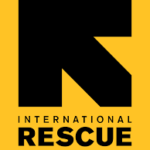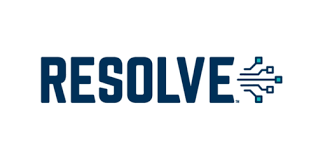
The International Rescue Committee (IRC) responds to the world’s worst humanitarian crises, helping to restore health, safety, education, economic wellbeing, and power to people devastated by conflict and disaster. Founded in 1933 at the call of Albert Einstein, the IRC is one of the world’s largest international humanitarian non-governmental organizations (INGO), at work in more than 40 countries and 29 U.S. cities helping people to survive, reclaim control of their future and strengthen their communities. A force for humanity, IRC employees deliver lasting impact by restoring safety, dignity and hope to millions. If you’re a solutions-driven, passionate change-maker, come join us in positively impacting the lives of millions of people world-wide for a better future.
Background/IRC Summary
The International Rescue Committee (IRC), one of the world’s largest humanitarian agencies, provides relief, rehabilitation, and post-conflict reconstruction support to victims of natural disaster, oppression, and violent conflict in 42 countries. The IRC is committed to bold leadership, innovation, and creative partnerships. Active in public health, education, livelihoods, women’s empowerment, youth development, and protection and promotion of rights, IRC assists people from harm to home. IRC began work in Nigeria in 2012 in the Kogi State in response to the flood emergency.
In the end of 2014 and the beginning of 2015, there has been a considerable upsurge in violence perpetrated by Boko Haram in Borno state which has made some parts of the state inaccessible, and the IRC expanded its interventions in Northeast states of Adamawa, Borno and Yobe. Furthermore, insecurity, banditry, kidnapping and flood disasters has also caused significant displacement in the Northwest states of Katsina, Sokoto and Zamfara. These areas are becoming accessible because of military actions making it possible to reach many people who have been denied access to any form of humanitarian assistance. From the beginning of the insurgency, the host communities have been housing a large number of displaced persons from other nearby communities and local government areas in the BAY states and in Northwest. These resources continued to dwindle as the internally displaced arrive these communities lacking the most basic services such as access to adequate shelter and simple household items; food; health care; safe drinking water and basic sanitation. In addition, the insecurity that has resulted from past has presented serious protection concerns for communities in the LGAs where children and women represent about 70% of the IDP/host community population. There is an immediate need to address the fundamental basic requirements of the IDPs and host community members.
Child Protection expanded its areas of intervention and responsive and preventive activities in all IRC Nutrition facilities which screens and identifies children admitted into these facilities to ascertain their vulnerability, identify protection concerns and provide them with case management while their caregivers also go through parenting skills sessions. The response has a main focus on psychosocial support for children, youth and parents through child friendly spaces, case management for unaccompanied and separated children (UASC) and working on community-based child protection mechanisms.
This Job Description is reviewed to capture the current expectation of the CP staff to provide him/her with guidance of what is expected of him/her based on the current context and programming. This will enable his/her supervisor to hold him/her accountable to his/her responsibility and ensure accountability to our targeted clients, donors, and IRC Nigeria Country Program.
Job Overview/Summary
The Child Protection Program Manager with the support of the CYPD Coordinator plays a key role in developing the Child Protection strategy, partnerships and providing oversight on day-to-day project implementation and reporting. The Senior Program Manager- Safety Outcome will directly supervise the Child Protection Program Manager. The Child Protection Program Manager will also be in regular contact with relevant CYPD Coordinator and Advisor.
Major Responsibilities
Program Development
- Provide ongoing leadership, training, and guidance to staff and local partners to ensure programming meets best practice standards and prioritizes the security of beneficiaries and staff.
- Participate in program design and proposal writing.
- Conduct or participate in assessments to ensure appropriate interventions are implemented.
- Implement the psychosocial strategy to meet the needs of targeted clients.
- Ensure that CP programming is community driven and that community leaders fully understand and participate in the design of the project.
- Work with the teams at the different filed sites to ensure sustained programming.
Staff and Community Capacity Building
- Collaborate with the CP Coordinator to implement the staff training plan for Program team members.
- Oversee and when necessary conduct trainings for other IRC staff, community and service providers.
- Collaborate with the Nutrition and Education Sectors to organize training for health staff, as needed.
- Collaborate with the other IRC Program Managers to maintain an on-going training program to ensure program integration.
- Liaise with the CP Coordinator and Field Coordinator as needed for difficult or complex cases.
Inter-Agency Coordination
- Develop and maintain effective working relationships with all stakeholders – including community leaders(Camp chairman, National Emergency Management Agency, State Emergency Management Agency) NGOs, UN agencies, Local Partners and other IRC sectors to enhance multi-agency and multi sectoral cooperation and coordination.
- Ensure that information from the coordination meetings is shared, as appropriate.
- Attend internal and external coordination meetings at the different sites.
Monitoring and Evaluation
- Ensure monitoring and evaluation systems, especially for child protection monitoring are in place which can be used for informed programming.
- Ensure monthly data cleanup and review meetings with the CPIMS focal person at location before they are shared to the sub sector for consolidation.
- Provide weekly and monthly reports to the relevant reviewers.
- Carry out field visits to all program sites on a regular basis.
Administrative Duties
- Oversee administrative aspects of the program including, but not limited to, writing job descriptions, interviewing and selecting staff, developing staff performance objectives and conducting timely performance appraisals.
- Manage budgets in order to maintain program expenditure within budget.
- Ensure that staff follow IRC global financial procedures and meeting donor requirements.
- Update procurement plans and spending plans and share regularly with the operations and PMU.
- Ensure that all internal (IRC) reporting requirements are met and that reports are of a high quality are submitted on time
- Provide ongoing leadership, training, and guidance to staff and local partners to ensure programming meets best practice standards and prioritizes the security of beneficiaries and staff.
- Participate in program design and proposal writing.
- Conduct or participate in assessments to ensure appropriate interventions are implemented.
- Implement the psychosocial strategy to meet the needs of targeted clients.
- Ensure that CP programming is community driven and that community leaders fully understand and participate in the design of the project.
- Work with the teams at the different filed sites to ensure sustained programming.
- Collaborate with the CP Coordinator to implement the staff training plan for Program team member.
- Develop and maintain effective working relationships with all stakeholders – including community leaders (Camp chairman, National Emergency Management Agency, State Emergency Management Agency) NGOs, UN agencies, Local Partners, and other IRC sectors to enhance multi-agency and multi sectoral cooperation and coordination.
- Ensure monthly data cleanup and review meetings with the CPIMS focal persons at location before they are shared to the CPIMS officer for consolidation.
Key Working Relationships
Position Reports to: Senior Program Managers – Safety Outcome
Position directly supervises: Child Protection Officers
Indirect Reporting
Other Internal and/or external contacts: describe the nature of departments or groups the position influences or requires support from to accomplish objectives.
Internal: IRC SECTORs, External: CPSS, PSWG
Minimum Qualifications
- Minimum six years of relevant experience designing, implementing, and managing large, complex projects that work to protect vulnerable children and youth.
- Minimum four years of project management experience in emergency context.
- Bachelor’s degree in social work, education, international development, or related field is required; Masters could be an added advantage.
- Experience in overseeing a child protection projects including supporting the delivery of psychosocial activities, emergency response, child protection case management including family tracing and reunification, and setting up child friendly and community based mechanisms.
- Experience in developing and implementing organizational child safeguarding policies and procedures, including for NNGO partners.
- Experience developing monitoring, evaluation, accountability, and learning processes for child protection within the education context.
- Demonstrated ability to liaise and build networks with government officials, community leaders, civil society representatives, and, preferably, protection actors within the context of safety and protection promotion.
- Demonstrated success incorporating innovation and participatory, flexible, and gender-sensitive programming into implementation.
- Significant previous experience working in conflict or crisis situations in Northeast or Northwest Nigeria.
- Availability to travel throughout the NorthWest Nigeria region.
- The candidate must be fluent in English; fluency in another Nigerian language like Hausa is required.







